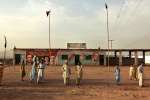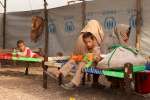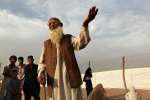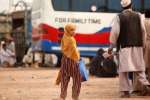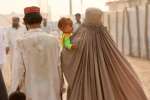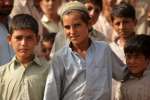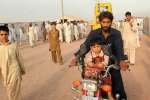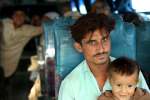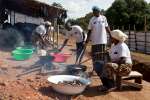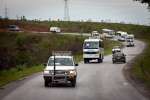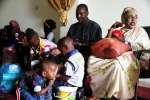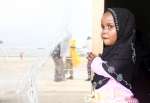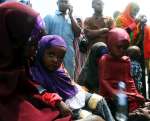Burundians return home from DRC's South Kivu, in new repatriation drive
Briefing Notes, 5 October 2010
This is a summary of what was said by UNHCR spokesperson Adrian Edwards – to whom quoted text may be attributed – at the press briefing, on 5 October 2010, at the Palais des Nations in Geneva.
This morning, at around 8.30 local time, a convoy carrying some 240 Burundian refugees from neighbouring Democratic Republic of the Congo crossed the border back into Burundi, marking the start of a new series of voluntary returns in one of the world's longest-running refugee sagas.
The refugees who returned today are among some 10,000 expected to go back to Burundi over the coming months at a rate of one convoy per week. Most are from the western Burundian provinces of Bubanza, Bujumbura rural, and Cibitoke, or from the southern province of Bururi. Once home, they will benefit from our reintegration programs including healthcare, education and shelter kits.
This particular return was the first that UNHCR has been able to facilitate from DRC's South Kivu province, where insecurity has until now prevented repatriations from occurring. The refugees there – 15,000 in total and mainly in the Uvira and Fizi regions – are the remnants of the tens of thousands of Burundians who fled ethnic clashes in their homeland in 1972 and later in the early 1990s. Of those in South Kivu, 10,000 have told us they want to go home. Of the remaining 5,000, many are hoping to settle permanently in DRC, and we are working with the government to address their integration needs.
Including the refugees in South Kivu, there are 16,500 Burundian refugees in DRC and close to 80,000 in other countries surrounding Burundi. Over the past six years more than half a million have returned home voluntarily, most with UNHCR support. Others have been integrated where they are: Tanzania, for example, has granted citizenship to 162,000 of them.
Burundi is itself a refugee host country with some 41,000 Congolese refugees in four camps and in urban areas. Two thousand of these have requested UNHCR's help in returning to DRC this year and we hope to begin repatriations on October 20th. This two-way voluntary repatriation programme – Burundians in one direction, Congolese in the other – has come about as a result of the tripartite agreement between UNHCR, Burundi, and DRC which was signed on 11 December last year.





